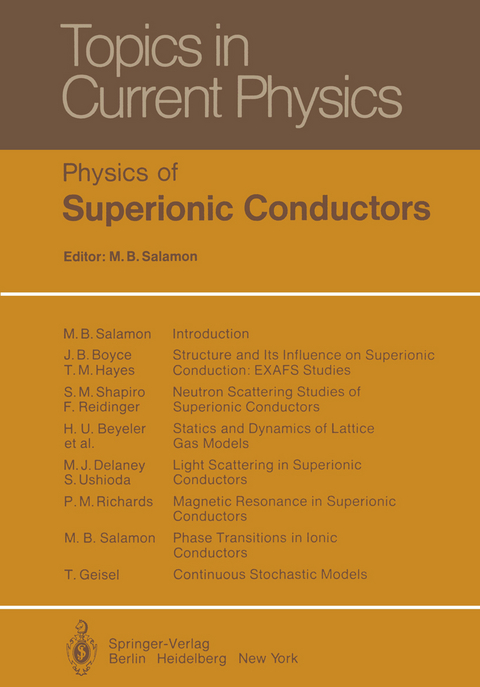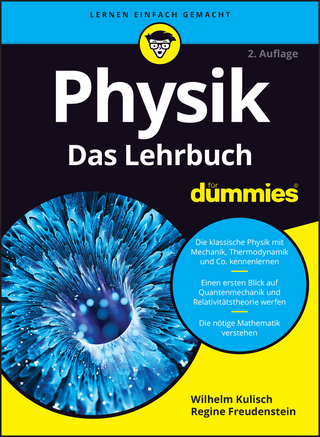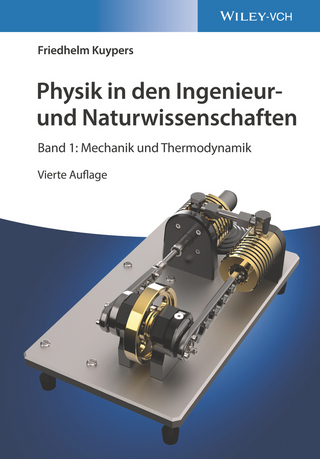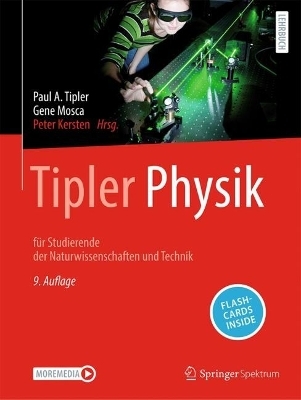
Physics of Superionic Conductors
Springer Berlin (Verlag)
978-3-642-81330-6 (ISBN)
Superionic conductors are solids whose ionic conductivities approach, and in some cases exceed, those of molten salts and electrolyte solutions. This implies an un usual state of matter in which some atoms have nearly liquidlike mobility while others retain their regular crystalline arrangement. This liquid-solid duality has much appeal to condensed matter physicists, and the coincident development of powerful new methods for studying disordered solids and interest in superionic conductors for technical applications has resulted in a new surge of activity in this venerable field. It is the purpose of this book to summarize the current re search in the physics of superionic conduction. with special emphasis on those aspects which set these materials apart from other solids. The volume is aimed to wards the materials community and will, we expect, stimulate further research on these potentially useful substances. The usual characterization of the superionic phase lists high ionic conductivity; low activation energy; and the open structure of the crystal, with its interconne ted network of vacant sites available to one ionic species. To these, as we demon strate in this volume, should be added important dynami~ and collective effect~: the absence of well-defined optical lattice modes, the presence of a pervasive, low-energy excitation, an infrared peak in the frequency-dependent conductivity, unusual NMR prefactors, phase transitions, and a strong tendency for the mobile ion to be found between allowed sites.
1. Introduction.- References.- 2. Structure and Its Influence on Superionic Conduction: EXAFS Studies.- 2.1 Technique of EXAFS.- 2.2 Structural Considerations for Superionic Conduction.- 2.3 EXAFS Investigations of bcc Superionic Conductors: AgI.- 2.4 EXAFS Investigations of fcc Superionic Conductors: Cuprous Halides.- 2.5 Summary.- References.- 3. Neutron Scattering Studies of Superionic Conductors.- 3.1 Neutron Scattering.- 3.2 Structural Studies.- 3.3 Inelastic Studies.- 3.4 Conclusions.- References.- 4. Statics and Dynamics of Lattice Gas Models.- 4.1 General Theory of the Lattice Gas Model for Superionic Conductors.- 4.2 Extended Dynamical Theory.- 4.3 Applications to Silver Iodide and Hollandite.- 4.4 Conclusions.- Appendix A.- Appendix B.- Appendix C.- References.- 5. Light Scattering in Superionic Conductors.- 5.1 Raman Scatteri ng.- 5.2 Low-Frequency Raman and Brillouin Scattering.- 5.3 Infrared Absorption and Frequency Dependent Conductivity.- 5.4 Conclusion.- References.- 6. Magnetic Resonance in Superionic Conductors.- 6.1 Theory of NMR Relaxation of and by Rapidly Diffusing Ions.- 6.2 Comparison with Experiment.- 6.3 Electron Paramagnetic Resonance.- 6.4 Structure Determination.- 6.5 Summary and Conclusions.- References.- 7. Phase Transitions in Ionic Conductors.- 7.1 Modern Theory of Phase Transitions.- 7.2 Models for Critical Behavior in Superionic Conductors.- 7.3 Critical Behavior of Physical Properties.- 7.4 Conclusions.- References.- 8. Continuous Stochastic Models.- 8.1 Models for Superionic Conductors.- 8.2 Continuous Models.- 8.3 Computer Simulations.- 8.4 Correlations Among the Mobile Ions.- References.- Additional References with Titles.
| Erscheint lt. Verlag | 29.3.2012 |
|---|---|
| Reihe/Serie | Topics in Current Physics |
| Zusatzinfo | XII, 255 p. |
| Verlagsort | Berlin |
| Sprache | englisch |
| Maße | 170 x 244 mm |
| Gewicht | 474 g |
| Themenwelt | Naturwissenschaften ► Physik / Astronomie ► Allgemeines / Lexika |
| Technik ► Elektrotechnik / Energietechnik | |
| Schlagworte | atoms • Condensed Matter • Crystal • diffraction • Diffusion • Dynamics • electron • Entropy • Heat • Ionenleiter • Material • Neutron • Physics • solid • Structure |
| ISBN-10 | 3-642-81330-5 / 3642813305 |
| ISBN-13 | 978-3-642-81330-6 / 9783642813306 |
| Zustand | Neuware |
| Haben Sie eine Frage zum Produkt? |
aus dem Bereich


